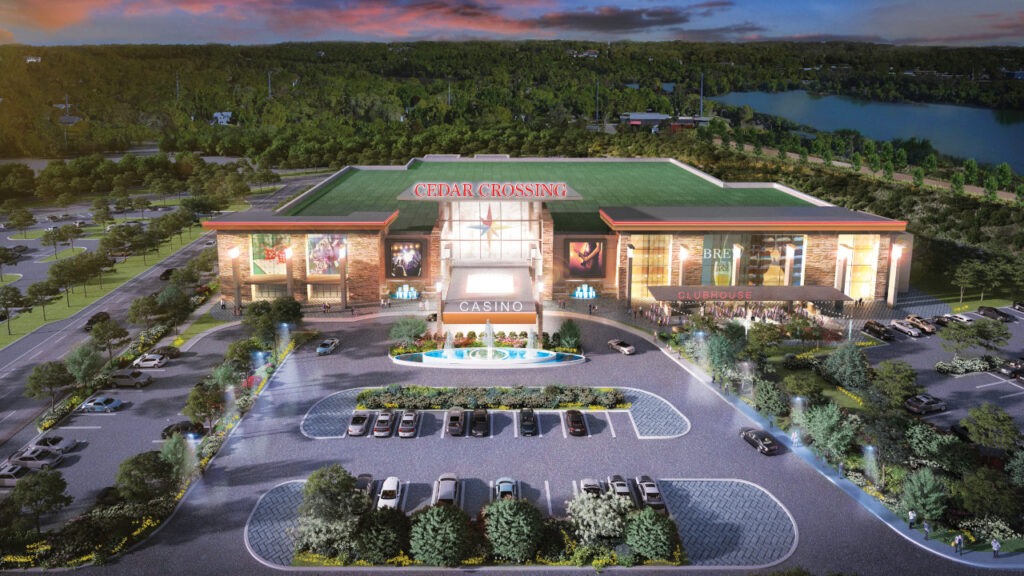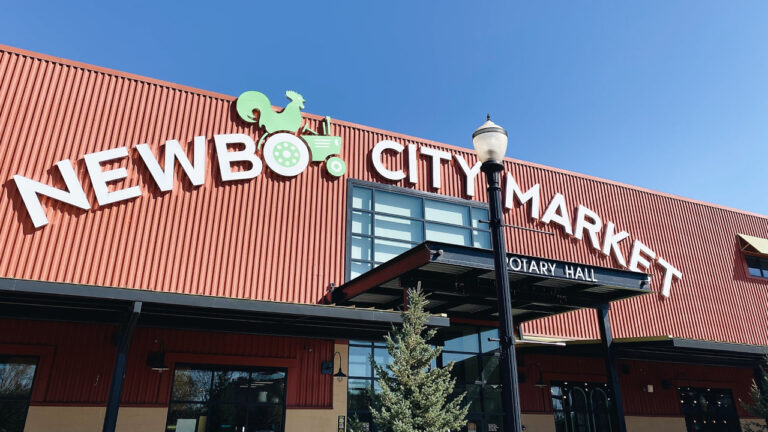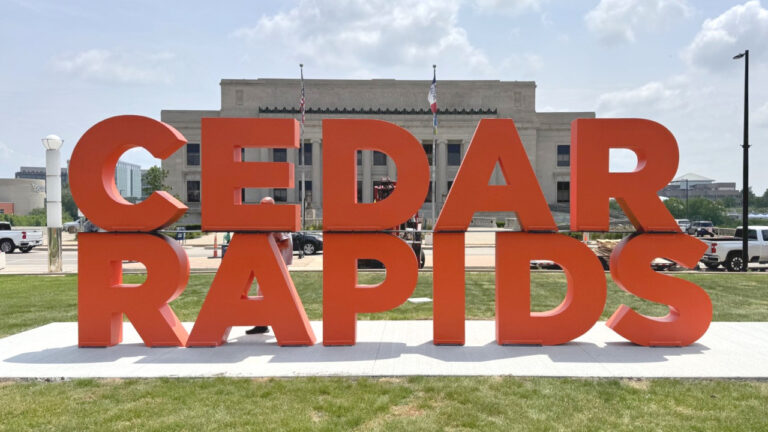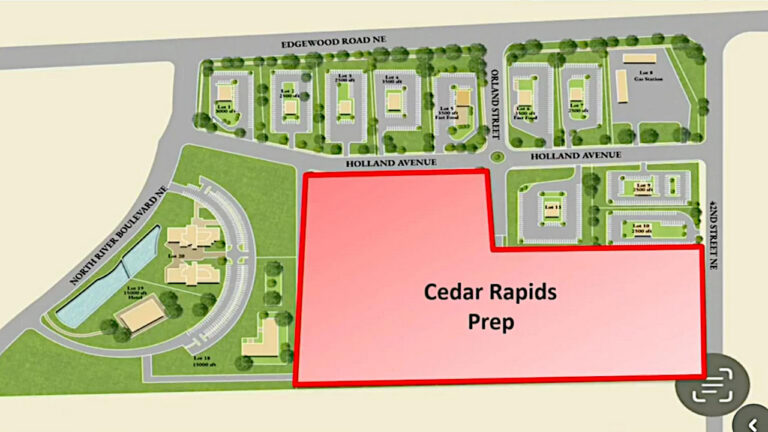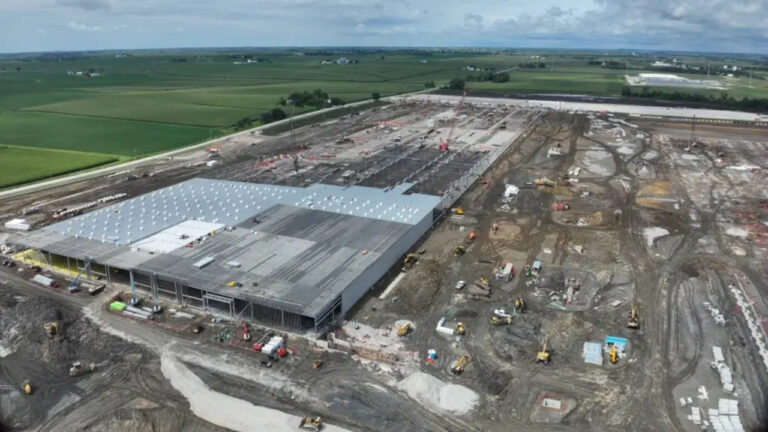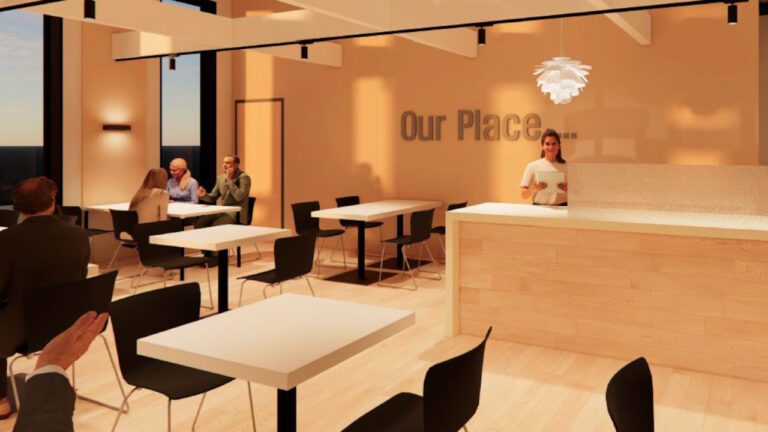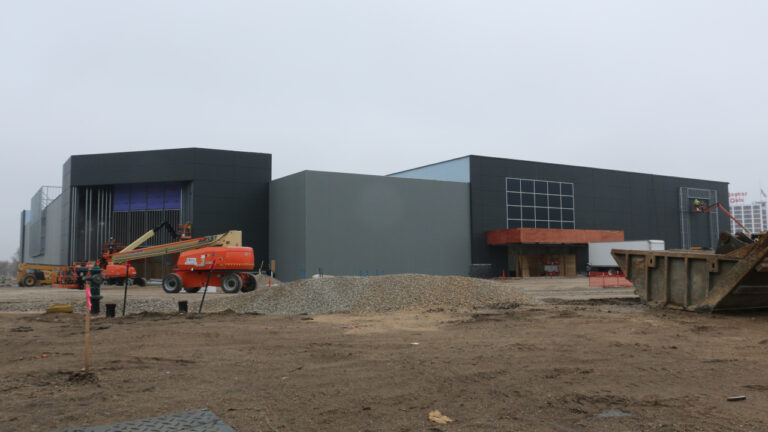Peninsula Pacific Entertainment (P2E) and the Linn County Gaming Association (LCGA) announced Wednesday they will again jointly apply for a gaming license with the Iowa Racing and Gaming Commission (IRGC) after a two-year state moratorium on new gaming licenses expires on June 30.
The announcement of plans for the casino, dubbed Cedar Crossing, is the latest chapter in the years-long effort to bring a casino to Linn County.
The IRGC has twice rejected casino proposals for Linn County, in 2014 and 2017, after commissioners largely sided with opponents who argued the state’s gaming market was saturated and a new Linn County casino would “cannibalize” revenue from existing state-licensed casinos.
However, that commission now has new members, raising hopes that opinions on a Cedar Rapids casino could change.
Linn County voters approved a measure in November 2021 that allows developers to seek a casino license for the county in perpetuity.
“The time is now for Cedar Crossing,” P2E board member Jonathan Swain said in a release. “Linn County residents have overwhelmingly passed two gaming referendums, and they have been patient. With the moratorium expiring soon, we look forward to bringing an unprecedented casino gaming and entertainment destination to Cedar Rapids.”
The application will likely be discussed at the IRGC’s next meeting July 8 at Prairie Meadows in Altoona, after the Iowa Legislature adjourned in April without ending a two-year moratorium on consideration of new gaming licenses that was passed in 2022.
LCGA president Anne Parmley said she will be attending the meeting, noting that IRGC chair Daryl Olsen indicated at the June meeting that the expiration of the moratorium would be discussed at the commission’s July meeting.
“We are pleased the Iowa Legislature made the decision to not extend the moratorium,” Mr. Swain said. “That decision allows the Iowa Racing and Gaming Commission to do what it has almost always done – review the landscape of Iowa’s gaming industry and make the best decision for the state of Iowa.”
Mr. Swain noted that a December 2021 study commissioned by the IRGC found that a Cedar Rapids casino would increase total statewide gaming revenue by $51 million in new revenue.
“Additionally, it is important to recognize that gaming competition already exists with sports betting that can be accessed via phones,” he said. “Brick and mortar casinos provide much greater return to the localities, and the Cedar Crossing casino would provide tremendous returns for Cedar Rapids, Linn County, and the surrounding communities. We appreciate our local partnerships and are excited to pursue a dramatic addition to Cedar Rapids and Iowa’s entertainment offerings.”
Developers and supporters first unveiled plans for for Cedar Crossing in May 2022.
As proposed, Cedar Crossing, with a budget estimated at $250 million, would incorporate Iowa’s 20th state-licensed casino, as well as bars and restaurants featuring celebrity chefs.
In July 2023, the Cedar Rapids City Council voted to approve preliminary terms of an agreement with the Cedar Rapids Development Group, comprised of nearly 100 local investors, on an option for potential purchase of city-owned property on the west side of the Cedar River.

Under the proposal, the CRDG would pay the city an option fee of $165,000 to retain the right to purchase city-owned property between F and I avenues NW and First and Fifth streets NW. Most of that property was previously occupied by the Cooper’s Mill restaurant and Best Western Hotel before those facilities were demolished due to damages sustained in the 2008 flood, and the property was subsequently acquired by the city.
The option to purchase the property extends through Dec. 31, 2025, but if the IRGC were actively considering a Cedar Rapids casino application at that time, the option could be extended for another year at an additional cost of $55,000, officials have said.
The city has an exclusive memorandum of understanding with the CRDG and the Linn County Gaming Association to develop a casino in Cedar Rapids. That memorandum extends through October 2029.
Under the terms of the agreement, the developer would be required to complete a 125,000-square-foot gaming facility that would incorporate restaurant space, event space and a gaming floor, no less than 1,500 parking spaces, and a minimum investment of $150 million.
The land purchase option also includes a number of other conditions to be met by the developer, including accommodating the city’s ongoing flood control project, paying the costs of relocating utilities if needed, and conducting a traffic study in the area.
Other private properties near the city-owned land would also need to be purchased by the developer to accommodate the casino development.
In an interview earlier this year, LCGA president Anne Parmley said gaming leaders were “excited and pleased” that the Iowa Legislature declined to extend the moratorium imposed in 2022.
“We still strongly believe that Linn County deserves the opportunity to build and operate a gaming operation,” Ms. Parmley said. “The Gaming Association’s primary responsibility is to allocate the funds that are required to come from the gaming operations to the community, supporting our nonprofits and community projects. That’s really where our focus is, getting us to the place where we can have that opportunity to invest in our community. There’s a lot of momentum in Linn County, and we want to build on that.”
Ms. Parmley said consideration of a new gaming license is now “back where it belongs” – in the hands of the IRGC.
“They’re the ones who should have purview over and regulate gaming in the state, so we’re excited for that to return,” she said. “That’s what they’re appointed to do, and they should be allowed to do that, so we’re excited for them to have this opportunity again.”
She also stressed that the lifting of the moratorium doesn’t guarantee that a gaming license will be issued to Linn County.
“Some people who don’t track the process as well think this means we can now build a casino,” she said. “But there’s a process, and we need to go through that process.”
Cedar Rapids Mayor Tiffany O’Donnell said in an April interview that the city is proceeding with its previous support of a casino in Cedar Rapids, and that Cedar Rapids deserves an opportunity at the state’s gaming table.
“We are set up in this country to allow the market forces to work, and this is one instance where our state has rejected that,” she said. “I believe the current plan that Peninsula Pacific has put forward represents modern gaming, and citizens should have the opportunity to enjoy that.”
Ms. O’Donnell said she also believes that “existing casino forces” have previously worked together to oppose a new addition to the state’s gaming landscape.
“We’re all aware now that current gaming interests, that we are seemingly protecting in this state, are building casinos across the border to take away from revenues that this state relies on,” she said. “This is something that the citizens of Cedar Rapids and Linn County overwhelmingly desire. And at the end of the day, we are not asking for anything out of the ordinary, any special treatment. We merely want the opportunity to apply for a license. And it looks like we may have that opportunity, or at least a window for that opportunity.”
If granted a license, leaders say Cedar Crossing will support local nonprofits with contributions of 8% of its annual gaming revenue. That would be the highest percentage in the state, and well above the state’s mandate that licensed casinos donate at least 3% to nonprofit organizations.
“People like to count us out, though we are part of a resilient community. Linn County has come back stronger than before – and we’re going to do it again with Cedar Crossing,” Ms. Parmley said in a release. “A local casino will help our communities be even more vibrant, as we estimate Cedar Crossing will be able to commit $5 million to $7 million to nonprofits annually. This will be a major boost to local organizations, and just one of the many ways this project will make Linn County an even better place to live, work and visit.”
In addition to county residents, the project has long been supported by several local government officials and trade unions.
“From the resounding support of Linn County voters to recent legislative developments and today’s announcement, our commitment to the Linn County Gaming Association has remained steadfast,” Ms. O’Donnell said. “The development team continues to demonstrate their dedication to Cedar Rapids with a vision for a casino that highlights our community’s potential as a modern entertainment and gaming destination. I am confident their next proposal will bring significant benefits to Cedar Rapids and Linn County as a whole, offering unmatched opportunities for our residents and visitors while providing vital support for community organizations to advance and thrive.”
“Linn County residents support casino gambling in Linn County,” said Linn County Board of Supervisors chair Kirsten Running-Marquardt. “This investment in our community would increase opportunity for our local economy in several ways, including job creation, tourism and providing unmatched entertainment options. Like other Iowa counties, we are looking for a fair chance for the people of Linn County to receive these benefits for our community.”


